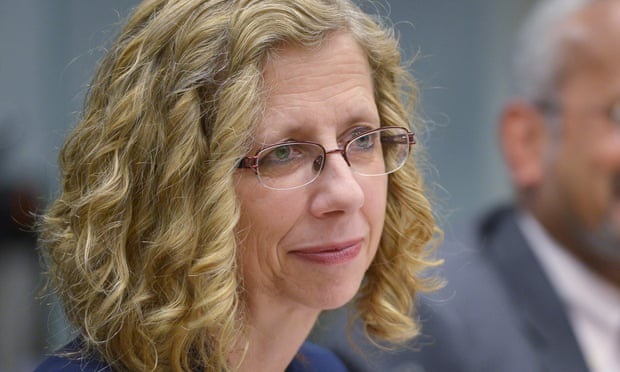Director General of the International Union for Conservation of Nature (IUCN), Inger Andersen, in a statement to observe the International Women’s Day 2019, says that the organisation’s “Gender Equality and Women’s Empowerment Policy” ensures that gender equality and women’s empowerment are systematically and comprehensively recognised, addressed and accounted for in IUCN projects.

We are all fighters in the global battle for gender equality. And as we fast approach International Women’s Day we should rightly celebrate our successes, while also highlighting the areas where the world urgently needs more progress.
#MeToo swept across global headlines last year, putting a spotlight on the inequalities women face in the workplace and in their livelihoods. This is a spotlight that must continue broadening to shine on more aspects of women’s lives, including in the environmental sphere. Women account for 80% of people displaced by climate change and are made more vulnerable when dry seasons affect crops, waters recede and firewood disappears, forcing women to work harder to feed and care for their families. In India’s Brahmaputra Valley, girls drop out of school during floods because they need to spend more time collecting fuel and water from the river. Meanwhile, IUCN research published in 2015 and supported by UN Women showed that just 12% of 881 environmental ministries – for instance fisheries ministries or forestry ministries – in 193 UN member states are run by women.
Last December, the World Economic Forum’s Global Gender Gap Report shockingly revealed that economic equality between men and women will take 202 years to achieve, with political equality 108 years away if progress continues to inch forward at its current pace. The rate of change varies hugely between regions, with South Asia projected to close the overall gender gap within 70 years, and progress in East Asia and the Pacific lagging almost a century behind at 171 years.
At IUCN, we insist that women represent 3.5 billion solutions to our most pressing global challenges. Data tells us that women matter – and gender equality matters – when it comes to conserving and protecting our environment. For instance,studies of the forestry and fisheries sectors demonstrate that the empowerment of women in local resource decision-making can lead to better governance and conservation.
The time for slow, business-as-usual progress is indeed up: this year, as the environmental community looks towards the post-2020 global biodiversity framework, the Union will draw on the ideas and energy of IUCN Members to define an ambitious and gender-responsive conservation action agenda at the IUCN World Conservation Congress, to be held in June 2020.
As the world’s largest and most diverse environmental network, IUCN has long believed in the meaningful, equal and substantive participation of women and men towards achieving sustainable development. With a Programme that touches more than 150 countries and a diverse State and civil society membership across all corners of our earth, IUCN is a catalyst for action and change. We are an important vehicle through which women’s empowerment and gender equality can advance.
This is why we recently updated the IUCN Gender Equality and Women’s Empowerment Policy. The policy ensures that gender equality and women’s empowerment are systematically and comprehensively recognised, addressed and accounted for in IUCN projects and that the IUCN project portfolio is improved through a gender-responsive approach.
The International Women’s Day is not just a day, a week, or even a year. It should be embedded in our daily lives, for its values are what we must all live by.
The call is clear: now is the time to scale up meaningful action. As Malala Yousafzai asked about the education and empowerment of girls just two months ago: “What will the next 10 years look like? That’s up to all of us.”
She’s right. With knowledge comes the absolute obligation to act. Movements like #MeToo are a spotlight trained on women’s – and men’s – rights. We must grab the opportunity to shine it everywhere and bring us closer to the gender equality the world so urgently needs.
